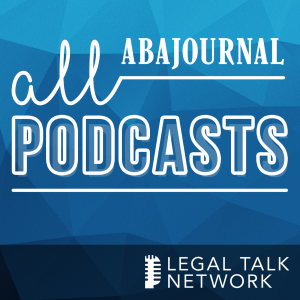
ABA Journal Podcasts - Legal Talk Network
Business:Non-Profit

How neurodiverse lawyers can thrive in the profession–and change it for the better
 2021-08-11
2021-08-11
Download
Right click and do "save link as"
There’s a business case to be made for hiring attorneys with ADHD, autism, learning disabilities and other neurological differences. Businesses have long touted out-of-the-box thinking, but cookie-cutter hiring practices don’t tend to result in diversity of thought. A legal professional who quite literally thinks differently can be an invaluable part of a team.
In her book Great Minds Think Differently: Neurodiversity for Lawyers and Other Professionals, autistic attorney Haley Moss provides guidance for firms looking to add neurodiverse employees; develop better working relationships with neurodiverse clients; and create more supportive workplaces to help their neurodiverse employees perform at their peak. But she also approaches the issue from the point of view of neurodiverse people looking to enter the profession and thrive within it, whether by advocating for accommodations or leaning in to the way their brain functions best.
In this episode of the Modern Law Library, the ABA Journal's Lee Rawles and Moss discuss Moss's journey as a child who was non-verbal to an adult with a law degree, law firm job and numerous public-speaking engagements. They also talk about how COVID-19 has shown law firms that flexible work arrangements are possible and desirable, and what that could mean for neurodiverse attorneys seeking accommodations.
Moss shares tips for students entering law school this fall, or who are attempting to pass the bar exam. And Moss also shares an anecdote about how her very literal way of thinking during research helped her firm successfully advocate for a recusal. If you are someone who never received a diagnosis as a child but have wondered whether you may have a condition like ADHD or autism, she also offers suggestions for how you could explore it further.
view more
More Episodes
How to plan your post-law life
 2023-12-20
2023-12-20
 2023-12-20
2023-12-20
Our favorite pop culture picks in 2023
 2023-12-06
2023-12-06
 2023-12-06
2023-12-06
012345678910111213141516171819
Create your
podcast in
minutes
- Full-featured podcast site
- Unlimited storage and bandwidth
- Comprehensive podcast stats
- Distribute to Apple Podcasts, Spotify, and more
- Make money with your podcast
It is Free
- Privacy Policy
- Cookie Policy
- Terms of Use
- Consent Preferences
- Copyright © 2015-2024 Podbean.com




